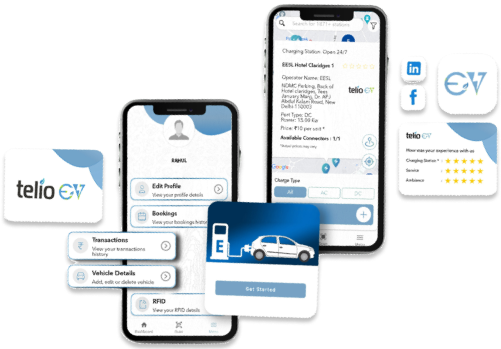Why You Need to Know About EV Charging Management Software?
Why You Need to Know About EV Charging Management Software?
Blog Article
Enhancing Electric Vehicle Charging with Advanced Management Software

The rapid adoption of electric vehicles (EVs) has necessitated the advancement of efficient and easy to use charging solutions. Central to this evolution are Electric Vehicle Charging Management Software (EV CMS) and EV Charging Apps, which enhance the charging process for both operators and users.
Comprehending EV Charging Management Software
EV Charging Management Software serves as a detailed platform that enables Charge Point Operators (CPOs) and other stakeholders to monitor, manage, and optimize EV charging stations. Key functionalities include real-time tracking of charging stations, user authentication, payment processing, and energy management. By integrating these features, the software makes sure efficient operation and enhances the user experience.
Key Features of EV Charging Management Software
1. Real-Time Monitoring and Control: Operators can supervise the status of charging stations, track energy intake, and address issues immediately.
2. User Authentication and Access Control: The software manages user gain access to, ensuring that only authorized individuals can use the charging centers.
3. Payment Processing: It facilitates seamless transactions, supporting different payment approaches to cater to diverse user preferences.
4. Energy Management: By optimizing energy circulation, the software lowers operational costs and supports grid stability.
5. Reporting and Analytics: Comprehensive data analysis aids in notified decision-making and tactical preparation for network growth.
The Role of EV Charging Apps
EV Charging Apps are created to supply EV owners with convenient access to charging infrastructure. These applications offer features such as locating close-by charging stations, real-time accessibility updates, navigation support, and remote tracking of charging sessions. By improving ease of access and user engagement, these apps play an important function in promoting the adoption of electric vehicles.
Combination with Open Charge Point Interface (OCPI)
The Open Charge Point Interface (OCPI) is a standardized procedure that helps with interoperability in between different EV charging networks. Integration with OCPI allows for seamless roaming, enabling users to access numerous charging networks with a single account. This interoperability boosts user benefit and broadens the ease of access of charging infrastructure.
Benefits of Implementing Advanced Charging Solutions
- Enhanced User Experience: User-friendly interfaces and reliable services increase customer fulfillment and commitment.
- Operational Efficiency: Automation and real-time tracking decrease manual intervention, lowering operational expenses.
- Scalability: Advanced software solutions EV Charging Apps support the expansion of charging networks to meet growing demand.
- Revenue Generation: Flexible rates models and effective payment processing open new income streams for operators.
Conclusion
The integration of EV Charging Management Software and user-centric EV Charging Apps is essential ahead of time the electric vehicle community. These technologies not just improve operations for service providers but likewise considerably enhance the charging experience for users. As the EV market continues to grow, the adoption of such advanced solutions will contribute in satisfying the increasing need for effective and accessible charging facilities. Report this page